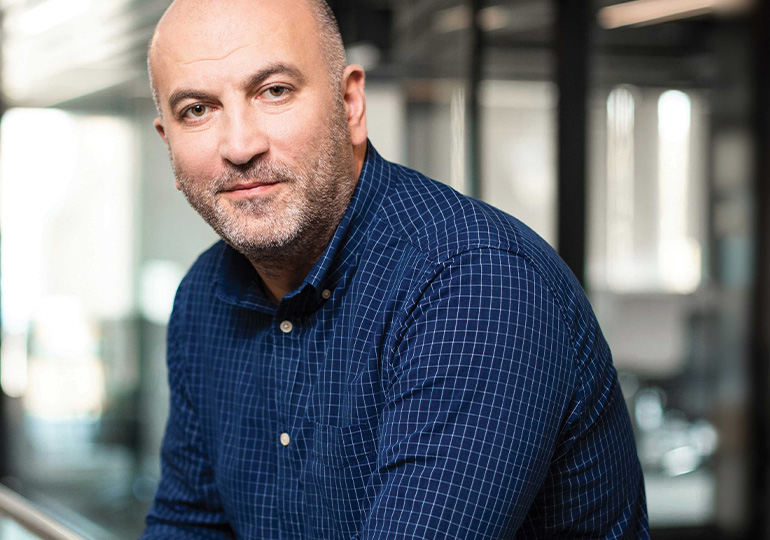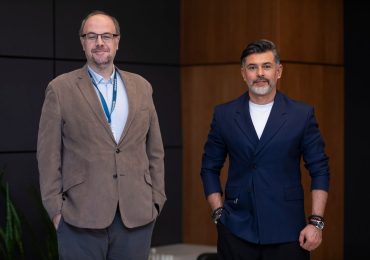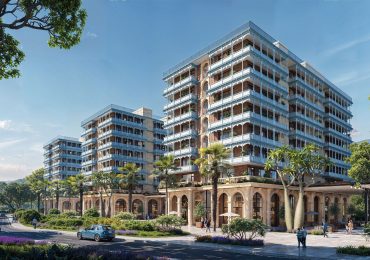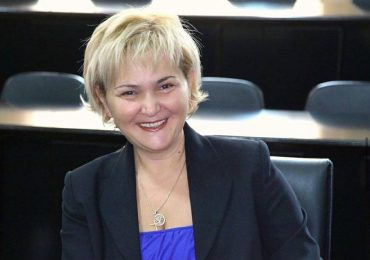Despite the volatile economic environment, Moldova’s largest bank, MAIB, finished 2021 with strong financial results, including record profits and an increase in market share. The bank’s impressive performance is the result of its skilled management team, which since February 2021 has been headed by an experienced banker from Georgia, Giorgi Shagidze. In an exclusive interview with Profit magazine, Giorgi detailed the transformation of the bank in the past year, provided details about the bank’s plans for an IPO and the payment of dividends, and shared his views about Moldova, its people and the business environment.
Mr. Shagidze, under your leadership MAIB finished 2021 with sound results, showing sustainable development in the bank’s primary areas of activity. Could you please tell us what was important for you in your first year at the helm of the bank?
First, I would like to stress one important thing – over the past year we have become a united and cohesive team. For the bank, it is especially important that the whole team works together to achieve our desired result, which is the sustainable development of MAIB.
You know, there are cases when companies have incredibly skilled staff. but when a new CEO is appointed, there is no unity around him or her. This may happen for several reasons. Fortunately, this was not an issue in my case – we quickly found common ground and became a cohesive team.
The second most important thing was a clear understanding of MAIB’s development strategy by the management team. It means that we all understand what we want to achieve. If you talk to any member of MAIB’s management team, each of them knows the challenges that face the bank at this stage. The same goes for the bank’s medium-term objectives. This is fundamentally important for any company, not just our bank.
We have yet to conduct an external audit that will confirm the financial results we achieved in 2021. We have made great strides in serving small and medium-sized businesses, providing them with a wide range of special products and services. I see this as a great achievement for both our old and new management teams.
I would also like to note that in 2021, MAIB’s share of this market segment grew by 4%. This is important as this growth has helped the economy through the development of our clients’ businesses.
In what other areas has the bank achieved growth?
We have significantly increased our share of mortgage lending to the population. The bank has opened a modern mortgage center and has updated its product suite for this type of lending. Thanks to this, the bank recorded a significant increase in mortgage lending in 2021, which, together with a hike in consumer lending, helped MAIB increase its market share.
Last year, we closely followed the bank’s profit figures and were pleased to see them growing each month. Some indicators were affected by different seasonal factors, but if we exclude them, then we can say that the bank’s key performance indicators went up every month. I very much expect this trend to continue in 2022, as this is equally important for the bank, its clients and shareholders, as well as the country as a whole.
I would like to mention that in 2021 we introduced the useful practice of holding regular meetings with shareholders. I meet with twenty to thirty shareholders every three to four months to brief them on our achievements, challenges and plans.
Lastly, I am excited to share with you the progress we have made in our preparation for an IPO. We organized a Moldovan Capital Markets Day at the London Stock Exchange in November 2021. Since then, our team has had over forty meetings with potential investors and the feedback we have received is very encouraging and above our initial expectations. This makes us more confident about what we will propose to shareholders in order for them to give us permission to prepare the bank for an IPO. If we get approval, then it is quite realistic that the IPO will go ahead in 2023.
Many expected this long-awaited event for Moldova, the launch of an IPO by a commercial bank, to take place in Frankfurt or Warsaw, if not New York or London. But the IPO will take place on the Bucharest Stock Exchange. Why?
I would like to emphasize that it is up to MAIB’s shareholders to make the decision about the IPO. There are two important aspects here. First, who will the investors be? Judging by the feedback we have received from meetings in Bucharest, London, and Prague, they will be high-quality investors with a good reputation at an international level. The majority of them are from New York and London. It means that if we launch the IPO, MAIB will become a well-known public company. Its shares will be bought by portfolio investors known all over the world. These investors are very important for both the bank and the country as they will make Moldova more attractive to other companies.
With regards to the stock exchange through which international investors will come to MAIB, we have studied in detail the opinion of potential investors and concluded that the Bucharest Stock Exchange is a very good choice. There are many potential portfolio investors there, in particular pension funds, who would be happy to invest in MAIB.
Yet, I must reiterate that shareholders will have the final say on the stock exchange decision.
Stock exchange fees also matter, right?
No, these costs will not be particularly important when choosing a stock exchange. There are other more important things such as the size of the bank and the volume of the IPO. MAIB will be among the top companies listed on the Bucharest Stock Exchange. Yet, this will not be the case if we choose another platform. As for the fees, they are not extremely high be it in London or Bucharest.
In 2021, MAIB reported record high-performance indicators, for example in terms of profit. Which financial results were achieved by MAIB last year please and inspire you the most? Conversely, which results do you find less satisfying or deserving of attention?
In the Moldovan banking sector, there is strong competition in terms of salaries. Last year, where possible, we raised the salaries of all qualified employees. This year we will review our salary policy for specific positions in the bank. This is an ongoing process that does not depend on the quality of the bank’s management. We must create good conditions for our employees so that they feel comfortable financially. But there are things that we can do now, and there are things that we will only be able to do in the years to come. We have already done a lot in this regard, and we will continue doing so in 2022. When talking about costs, it is necessary to understand the situation correctly and call things by their proper names. It is impossible to go through such a serious and large-scale transformation without incurring costs.
As for 2022, we will focus on digital innovation. We are now introducing a new principle called agile, which fundamentally changes the very philosophy, understanding and approach to conducting banking. With the help of this principle, we changed the staff structure into small teams focused on solving specific tasks and obtaining expected results. This year we also plan to finalize the construction of our new headquarters and to move there, where we will actively implement different agile approaches representing a new direction in Moldova.

Leading international companies and consultants are now helping MAIB achieve a complete transformation. I would like to stress that all successful international companies and banks have already completed similar transformations or are in the process of doing so. I hope and believe that we will start to see good returns from MAIB’s transformation by the end of 2022.
Foreign banks that have gone through such a process have seen solid gains. I believe that a modern bank will find it difficult to compete without this.
Could you please give us details about the bank’s profit, loan, and deposit portfolios in 2021?
As I have already mentioned, we managed to increase our loan portfolio by more than four billion lei in 2021, increasing our market share even more. Our deposit portfolio reached 28.6 billion lei, which is 31.7% of the total deposit portfolio of the country. This indicator soared by 19.8% in 2021. Net profit was 721.8 million lei, which amounted to 198 million lei more than net profit in 2020.
What can you tell us about the bank’s return on equity (ROE)?
We managed to increase ROE by 2.76% last year to reach 13.81%. This figure is based on the bank’s unaudited results.
What does MAIB lack to achieve a ROE of 20%, which is considered a good return on investment?
We are confidently moving towards this ROE hurdle, but, as you know, this cannot be achieved overnight. With a stable social and economic situation and a stable exchange rate, we believe that the cost of capital of Moldova’s big banks is around 15%.
A ROE of 20% in the medium term would mean, among other things, that the bank becomes extremely attractive to international investors. We have a clear understanding of what we need to achieve in terms of ROE, even if it may seem difficult today.
Maintaining a quality loan portfolio is a key priority for any bank. For MAIB, what percentage of non-performing loans is considered healthy?
According to international standards, any figure below 5% is good. Last year, when the bank’s loan portfolio soared by 4.1 billion lei, of which 1.8 billion lei was deployed in the real estate sector, non-performing loans accounted for slightly more than 8%. The figure was marginally higher than in 2020. But I am confident that the quality of our loan portfolio will improve in 2022. We are now doing an in-depth risk analysis. We are also introducing modern loan software – both initiatives should help the bank avoid risks and make the right decisions when granting loans.
Are you satisfied with MAIB’s investment portfolio?
MAIB leasing and MoldMediaCard are subsidiary companies and therefore, an integral part of the MAIB business model. We do not look at their results from the position of a classical portfolio investor. For us, it is important that these businesses participate as effectively as possible in enhancing the customer experience of the entire MAIB group. The managers of these companies are among those one hundred team members who, among other things, are united by financial incentives to achieve the bank’s strategic goals.
Our entire group of companies is focused on our top priorities: New standards of service for our customers, digital innovation, and a successful IPO. For the time being, we do not plan to invest in other assets.
When you say that MAIB offers “team spirit” to its customers, what exactly do you mean?
It is quite simple – it means that each team member knows and has a clear idea of what we want to achieve as a team. Together we achieve these goals, or together we do not.
We are introducing an agile approach, and as a result, there will be no individual goals, only clear team goals and objectives. I am convinced that today it is difficult to achieve good results without team spirit and a business mindset in each one of our team members. “Team spirit and cohesion” are some of the key values at MAIB. We actively cultivate, develop, and strengthen them. This is not new and has been happening at MAIB for a while now.
What is the bank doing to grow its loan portfolio and prevent a decline in deposits amid growing inflation?
There are good models that help a bank in situations when the market environment changes rapidly as is the case now when the cost of funds is constantly increasing. The National Bank’s recent decision to increase the base rate by 2% to 10.5% will affect the price of loans. But we spare no effort to make sure that only part of the rising rates is reflected in the price of loans. At the same time, businesses must understand that given the latest developments, banks will not be able to lend on the same conditions as a year ago.
It means that interest rates on deposits would also change, would it not?
That is correct, we have significantly increased deposit rates in response to the changing market situation. It means that if the deposit rate is, for instance, 6%, then the interest rate on loans would also go up.
What do you mean by “quality services” at MAIB? How can the bank, with the help of these services, maintain its leading position in the market and remain a dependable partner to its customers?
The main objective in terms of providing “quality services” is to generously share our expertise with customers. It is based on transparency, innovation, flexibility, professionalism, trust, and team spirit.
Every day, we strive to be more than just a bank, but a partner to our customers – to be there for them, their families, their businesses, whatever they do and wherever they are in the world. MAIB’s banking services and products have one important goal: To make the bank’s interaction with customers easier, simpler, more convenient, and faster, which is particularly important for people today.
What do “suitable internal and external conditions” mean, especially since they are so necessary for a successful IPO?
First, I would mention here the progress Moldova is making in all directions of its development. A foreign investor needs this to plan its activities. Any goal can be successfully achieved in a country with a predictable business environment.
So far government officials have attended all the events that we have organized for potential investors. Their participation is important as investors get first-hand information about the challenges facing the country and the goals pursued by the authorities. This helps them to better understand and have a clearer picture of the country in which they plan to make an investment.
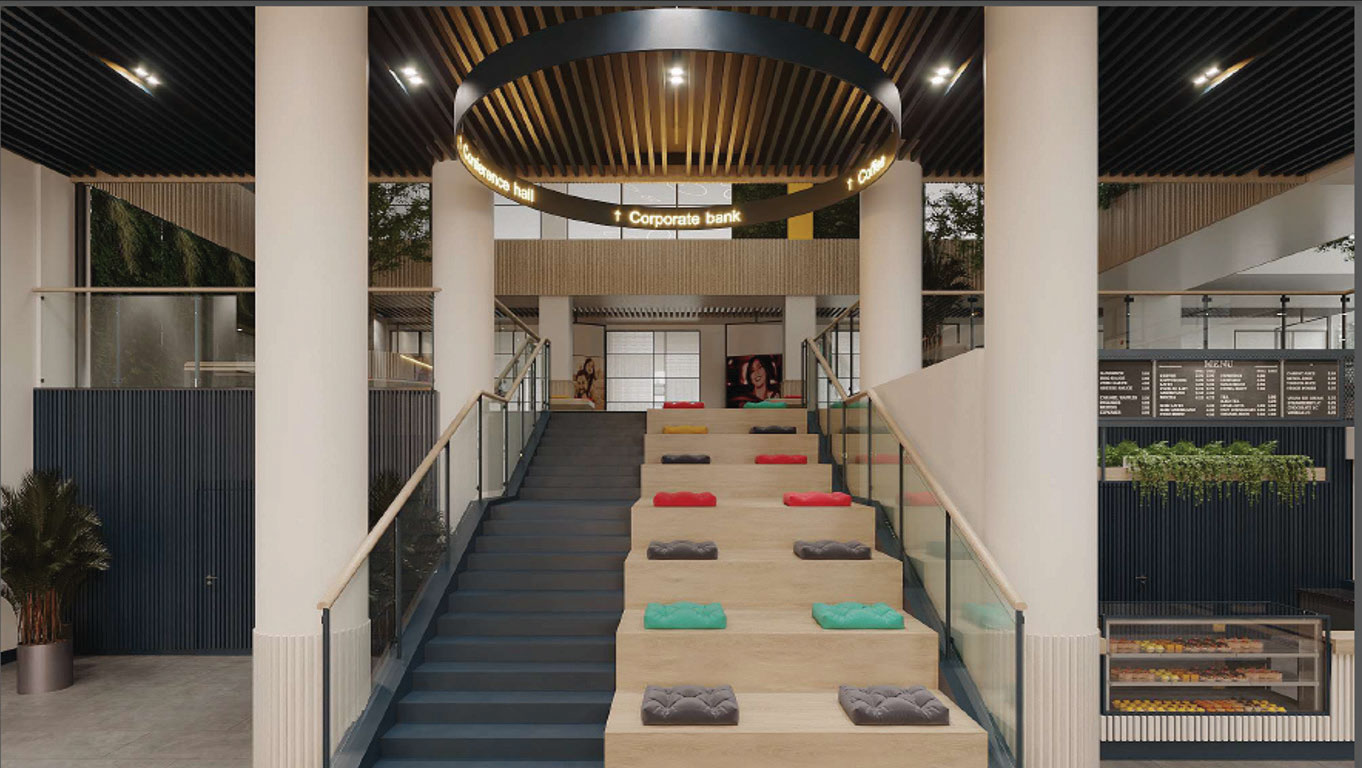
It is important to note that the lion’s share of Moldova’s exports, up to 70%, go to the EU – a large, stable, and predictable market with around 550 million consumers.
Yes, we understand that there are geopolitical aspects that are not related to Moldova, and that might have a negative impact on MAIB’s intention to launch an IPO. If they persist by the time of the IPO, then we will wait and see how the situation improves.
The bank is now actively updating its business units. When could we expect MAIB to become competitive abroad?
I believe that our branches could operate in Romania, as the services they provide meet the standards of similar bank units operating there. Yet, I would like to stress that we do not plan to be physically present abroad. Our strategy is to provide digital services so that Moldovans working all over the world can have access to them.
Shareholders have proposed that managers get incentives, including bank shares, in addition to their salary. This is something new for Moldova. When does the bank plan to introduce these incentives?
This is a particularly important and effective incentive system that motivates managers in the long run and combines their interests with those of shareholders. Many banks around the world are using this system, and I am incredibly grateful to MAIB’s shareholders for supporting the introduction of this practice in our bank. The very fact that the system will involve around one hundred employees distinguishes MAIB from other regional financial institutions. As I understand it, no bank in Moldova has the same system yet. It is remarkable that now the objectives of around one hundred employees are the same as those of the bank’s CEO. Although we have different wages, in strategic and tactical terms our goals correspond 100%.
You said this set-up includes around one hundred employees – is this a small or a considerable number for a bank like MAIB?
I think that, in our case, this is the optimal figure.
The market price of MAIB shares soared to a record high of 4,000 lei (around $220) since you have been at the helm of the company. To what extent does this price reflect the real value of the bank’s shares?
Certainly, the growing share price is a positive factor. Shareholders, and those who buy shares at this price, believe in what we do and how we develop the bank. I will not talk about the impact of this price on the value of the asset. But I am sure closer to the time of the IPO, we will have a good opportunity to talk about the right market price for MAIB’s shares.
Upon your arrival in Chisinau a year ago, you compared Moldova with your native Georgia. The two countries have almost the same size population, and their economies and financial markets are also comparable. Yet, there are differences too. After a year in Moldova, could you please tell us why TBC Bank, where you worked before, has a profit of over $200 million, and MAIB only $40 million?
First, for MAIB this means a good outlook and future opportunities because it shows us – the managers – what financial results we should strive towards.
Secondly, the profitability of a bank depends on several factors. For example, in Moldova, the ratio of bank loans to GDP does not exceed 24%, while in the region the figure varies between 50% and 70%. This suggests that the banking system and MAIB have real conditions for dynamic growth soon.
Does MAIB plan to pay dividends for 2021?
Under the dividend policy approved by our shareholders; the bank will pay dividends in the amount of 30-50% of profit earned in the previous year. We will try to comply with this decision. I very much hope that dividends for 2021 will be much higher than the previous year. But first, we must conduct an external audit that will confirm our financial results. Then we will ask for the National Bank’s permission to pay out dividends.
Could you please share with us your impressions about Moldova: Its culture, traditions, cuisine, people, and business environment?
I must admit that even before coming to Chisinau I had heard a lot about the kindness and hospitality of Moldovans. Over the past twelve months, I have had the opportunity to see with my own eyes what good, sincere, and responsible people Moldovans are. I have discovered Moldova’s regions, which I like to visit regularly, as I am attracted by the beautiful nature, delicious cuisine, and excellent wine. As for Moldovan businesses, I would like to emphasize the high level of exports to the EU, which is significantly above Georgia’s. At the same time, in Georgia, the tourism sector is more developed, and this has a positive impact on the country’s GDP.

